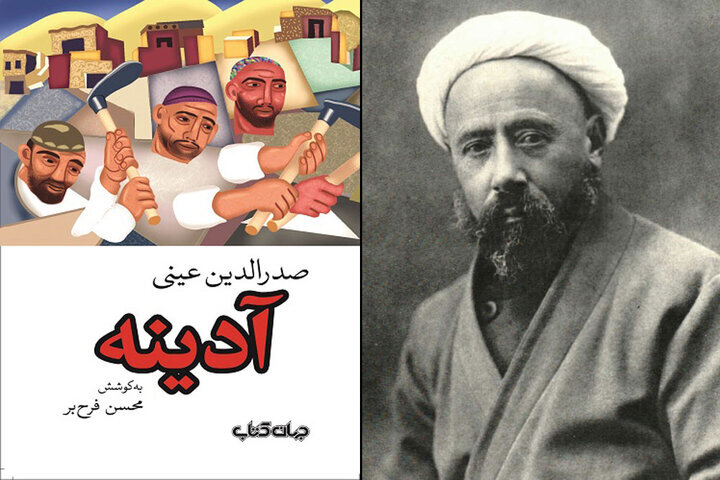Sadriddin Aini’s “Odina” published in Persian

TEHRAN-The Persian translation of the novel “Odina” written by Tajik author Sadriddin Aini has been released in the Iranian bookstores.
.The book has been translated by Mohsen Farahbar and Jahan Ketab Publication has published it in 296 pages, Mehr reported.
“Odina” is considered the beginning of new Tajik literature. Odina, the protagonist of “Odina,” comes from a poor peasant family and is exploited throughout his life, until he finally comes into contact with socialist ideas that signify for him light at the end of the tunnel of oppression (which he, however, is unable to reach). Odina was a poor, lonely, and desperate young man, who in his youth became a victim of treachery, betrayal, oppression, and injustice of tyrannical rulers.
By the time he started writing Odina, Aini had already become established in the Soviet social hierarchy by supporting the creation of the Bukharan People’s Soviet Republic (despite physically remaining in Samarqand).
Aini’s “Odina” (completed between 1924 and 1926) is one of his early works, in which the author’s journey towards Socialist realism was just starting. This makes its analysis particularly interesting from the point of view of how politics affected literature in early Soviet Central Asia. This story, similar to many of Aini’s other works, was published and modified by both the author himself and various editors several times.
The length of the story increased with each subsequent edition, with various detailed descriptions and Odina’s social development being added along the way. This was Aini’s first published work, in which one could still notice remnants of sentimentalism and romanticism, which were characteristic of the writer’s pre-Revolutionary literary legacy.
Sadriddin Aini (1878-1954) was a Tajik intellectual who wrote poetry, fiction, journalism, history, and a dictionary. He is regarded by Tajiks as Tajikistan's national poet and one of the most important writers in the country's history.
In 1934, he attended the first Soviet Congress of Writers as the Tajik representative. By purporting national identity in his writings, he was able to escape the Soviet censors that quieted many intellectuals in Central Asia. He was a member of the Supreme Soviet of Tajikistan for 20 years, was awarded the Order of Lenin three times, and was the first president of the Academy of Sciences of Tajik SSR. After 1992, his writing helped to bind together a sense of Tajik nationalism that survived the collapse of the Soviet Union.
Aini's early poems were about love and nature, but after the national awakening in Tajikistan, his subject matter shifted to the dawn of the new age and the working class. His writings often criticized the Amir of Bukhara.
SS/
Leave a Comment